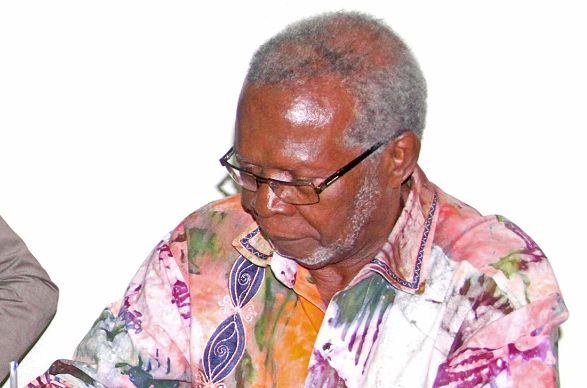
Reform Parliament - Prof. Kwame Akon Ninsin
A professor of political Science with the University of Ghana, Emeritus Professor Kwame Akon Ninsin, has called on relevant authorities and all stakeholders, to as a matter of urgency, make efforts to reform the current nature of the country’s Parliament.
That, he said, would serve as a major step in the fight against corruption.
Advertisement
He observed that the role of Parliament in governance had been compromised through the competition for
power, adding that most people competed for power purposely to get access to resources of the state for their personal benefit.
Launch
Professor Ninsin was speaking in Accra at an event organised under the auspices of the Institute for Democratic Governance (IDEG) and the Political Science Department of the University of Ghana to launch his book.
The book entitled The Corrupt Elites: Anatomy of Power and Wealth in Ghana seeks to unearth the root cause of corruption in Ghana through a historical analysis of its trajectory.
The book also seeks to expose the fact that what hitherto has been labelled as corrupt practices are only the symptoms of social problems created deliberately or otherwise by successive leaders to serve their interest.
It further draws readers’ attention to the fact that institutions that have been set up by successive governments dating back to the colonial time are specially structured to condone the act of corruption.
The book again reveals the dangers of the menace and suggests a number of ways forward to the curtailment of corruption.
Two political parties
“Parliament was not set up to play host to two political parties. If you want to address this problem, reform Parliament by first reforming the mode of representation in the house and it will have a ripple effect on other institutions that are set up by Parliament and in Parliament.,” Professor Ninsin said.
He was also quick to add that the problem was not peculiar to Parliament but at all levels of leadership in the society, from the central government to the districts because they were entrusted with public money and they exercised liberty to appropriate or misappropriate it.
Institutions
He noted that people had a field day to engage in corrupt practices because the institutions that had been set up to ensure compliance failed to do their work as they should and, therefore, enjoined them to be active.
“So instead of targeting the individual or episodes of practices of corruption, let's look at how we can reform the structures of institutions and make them also create opportunity for a change in attitude and norms towards the management of public property,” he said.
Change
For his part, a senior research fellow with IDEG, Professor Atsu Ayee, called for a total change in the attitude of the people to end corruption.
He said the various institutions were manned by humans and, therefore, a change in their mindset and behaviour was instrumental in mitigating the situation.
“We call on civil society and the media to strengthen the campaign against corruption.
Let us make the people aware of the cancerous nature of the act and the danger thereof it poses to the future of the country,” Professor Ayee said.



